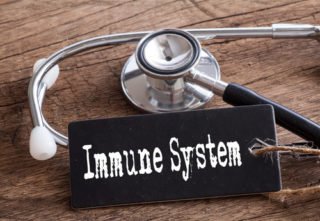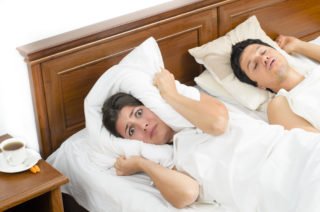Your hormones, state of mind, mood, memory, ability to concentrate, make decisions, immune system, and – this goes without saying – your energy levels. According to Harvard Health, the appropriate quantity and quality of sleep you get have an influence on nearly every element of your health.
Sleep is also one of the corners of the golden triangle of health
This triangle of health is made up of three things. Physical activity, nutrition, and sleep are the three elements without which our bodies struggle to function optimally. That’s according to psychologist and professional sleep researcher Hannes Kruger.
“You will only be able to eat well and exercise well if you have had a good sleep,” he said, “and people who rest well feel physically better, more in control, and don’t [engage in] emotional eating.”
When we are in our infancy, sleep is vital for a baby’s growth and healthy development to take place. For school-going children, sleep is needed for optimum concentration and focus. In a study that involved around 1000 children and preteens, sleep and school performance were measured to find out how closely the two were linked. Researchers found that those who slept poorly experienced significantly more trouble achieving at school than those who fell asleep easily and slept through the night. At least 10 hours of sleep is recommended for school-going children, but this varies.
Sleep during a global pandemic
Later in life, sleep is just as important, because it helps us to maintain good health and daily function. According to Harvard Health, if we don’t get enough sleep, we are at higher risk for accidents or injuries. Not only that, but our chances of developing chronic diseases like obesity, diabetes, and heart disease also go up.
 Now that we find ourselves in the midst of a global pandemic, it’s even more important that you get the rest your body needs to function optimally. As mentioned, when we sleep, our immune system is supported. On the other hand, when you’re sleep-deprived, you’re more likely to get sick. This is because when the body doesn’t get the amount of sleep it needs, it struggles to produce the cytokines the body needs in order to fight infection. A strong immune system is one of the best ways to counter the pandemic.
Now that we find ourselves in the midst of a global pandemic, it’s even more important that you get the rest your body needs to function optimally. As mentioned, when we sleep, our immune system is supported. On the other hand, when you’re sleep-deprived, you’re more likely to get sick. This is because when the body doesn’t get the amount of sleep it needs, it struggles to produce the cytokines the body needs in order to fight infection. A strong immune system is one of the best ways to counter the pandemic.
However, for many people, the circumstances of the pandemic can make it hard to get that oh-so-important rest. Mounting stress levels due to job insecurity, worries about family members, and the future, in general, can prevent you from maintaining your regular sleep schedule. On top of that, we are constantly bombarded with information surrounding the pandemic. As a result, the mind has a hard time shutting off when it needs to.
Blue light vs sleep 
According to measurement company Zenith, the average American adult spends approximately 3.5 hours each day on the internet. They expect it to grow to more than 4 hours in two years. Blue light emitted by screens reduces the production of the sleep hormone melatonin. This hormone is produced by the pineal gland in the brain. As a result, the body struggles to fall asleep as easily as before.
Moreover, for many people, their regular daytime routines have changed dramatically. This contributes to the negative impact on their sleep schedules. Add a depressed, stressed, or anxious mood to that, and you can kiss those 7 – 9 hours of deep, uninterrupted sleep goodbye.
So what can you do to maintain a healthy schedule? Here are a couple of tips from various sleep specialists on how to get your best sleep during the pandemic.
1. Watch your nap time
While a good, long nap in the afternoon might be dear to your heart, it could wreak havoc on how well you’ll be sleeping when nighttime comes. You need to optimize how you approach nap times.
Keep your power naps to 1 a day for less than 30 minutes and schedule them for before 14:00. Stop indulging in them if you still struggle to sleep at night.
2. Watch your screen time
If you’ve been struggling with falling asleep, ask yourself whether you are guilty of mindlessly scrolling through your favorite social media channels in bed. Perhaps you like to watch your favorite series on your laptop in bed before going to sleep. Or maybe you’re stressed about the latest statistics on Covid-19, and you check Twitter or your news app for the details.
Whatever the reason, if you’re glued to a screen before bedtime, you need to stop for the sake of your sleep. As mentioned, blue light from the various screens in our lives – cell phones, laptops, tablets, televisions, and the myriad of others – wreak havoc on our sleep hormones. This is why it’s important to turn off all of your devices at least an hour before bedtime. Noisy notifications from our phones only make matters worse. Make it easier for yourself by leaving your device to charge in a different room than your bedroom.
If you do use your cellphone, consider using some of the following free apps to help you unwind and prepare your mind for sleep:
- Pillow
- Digipill
- Pzizz
- Relax Melodies
- Sleep Time
3. Figure out what your body needs
According to the National Sleep Foundation, adults require between 7-9 hours of deep rest each night in order to recharge properly. Experiment with different amounts until you can determine what’s best for you. Since most people are not currently required to spend their nights anywhere but at home, this is the perfect time to figure it out. Try to go to bed each night at the same time, and set an alarm so you can wake up once you’ve got the rest you need.
4. Have a healthy sleep routine 
A big part of falling asleep is our body being able to recognize the bedtime signals that lead to bedtime. This is why a routine is so important. Now that the hour before you go to bed is open, fill it with relaxing activities that will encourage deep sleep. Take your bath or shower during this time, put on some comfortable pajamas, drink some chamomile tea, read a book, and listen to relaxing music.
You can also diffuse a variety of essential oils to invoke a calm and relaxing response.
5. Practice breathing exercises
Now that your melatonin levels aren’t hampered by blue light, your routine is looking like it should, and your body is about to get the amount of rest it needs, it’s time to kick it off. Use deep breathing exercises to settle your mind and body. This also helps to lower your cortisol levels, reducing stress. Ten slow, deep breaths should do the trick. Inhale slowly through your nose for 3-4 seconds, then exhale slowly through your mouth for the same beat.
6. Supplement safely 
For most people, making certain changes to their lifestyle, like those shown above, should be sufficient to get their sleep back on track. However, others might require some additional help.
According to Dr. Siobhan Dawson, a specialist psychiatrist, if you’re still struggling to get a good sleep routine during lockdown, you should consider speaking to your doctor about supplementing with melatonin. At low doses, this can help to regulate the sleep cycles.
According to the results of a study published in Nutrition Journal, melatonin could possibly improve sleep for people with insomnia. Meanwhile, jetlag could also be improved with its use. Moreover, it had fewer side effects than many other drugs. According to the National Sleep Foundation, melatonin should be taken two hours before bed for optimum results. Keep in mind that the FDA is not regulating melatonin. It’s therefore important to contact your doctor first, and if recommended, to ask for a prescription.
The following foods also contain melatonin:
- mushrooms
- grapes
- strawberries
- cherries
- peppers
Snoring or sleep apnea? 
Unfortunately, sleep issues go further than struggling to get rest. Perhaps you’re the person who falls asleep easily despite everything going on with Covid-19. But you’re also keeping everyone awake with your violent snoring. If so, it’s important that you speak to your doctor about the issue, because it could be pointing towards a more serious health problem.
While a bit of snoring is usually nothing to worry about, if your partner or roommate is reporting sounds similar to choking or gasping, you could be suffering from sleep apnea. These sounds indicate the person’s breathing is briefly stopping while they’re asleep, and it is not good for the heart.
It’s normal for many to snore a little whilst sleeping.
However, the type of snoring that sounds more like gasping or choking could be a sign of obstructive sleep apnea (OSA). This is when a person stops breathing for brief moments several times a night while they are still sleeping. This puts extra strain on the heart, increasing the risk of a heart attack.
Results from a new study presented at the annual meeting of the Radiology Society of North America showed that both OSA and snoring can lead to earlier impairment of cardiac function in women than in men. Sleep apnea also causes an increased risk of left ventricular – and less frequently – right ventricular dysfunction in the heart.
According to Dr. Robert Deeb with the department of Otolaryngology – Head and Neck Surgery at Henry Ford, snoring should not be ignored.
“Patients need to seek treatment in the same way they would if they had sleep apnea, high blood pressure, or other risk factors for cardiovascular disease,” he said. “Our study adds to a growing body of evidence suggesting that isolated snoring may not be as benign as first suspected.”
Importantly, the study also found that OSA could be vastly underdiagnosed among people snoring. Whether you’re the one struggling to sleep or the one causing the sleepless nights, you need to seek out medical help as soon as possible.
The bottom line
Sleep is vital for your well-being. If your sleep problems persist, you need to seek specialist medical attention.
References:
Barr, S. 2020. Coronavirus: why do people seem to feel groggy and tired during lockdown? Independent. https://www.independent.co.uk/life-style/health-and-families/coronavirus-lockdown-tired-sleepy-fatigue-daylight-routine-a9450196.html
Costello, R.B., Lentino, C.V., Boyd, C.C., O’Connell, M.L., Crawford, C.C., Sprengel, M.L., Deuster, P.A. 2014. The effectiveness of melatonin for promoting healthy sleep: a rapid evidence assessment of the literature. Nutrition Journal. 13: 106. doi: 10.1186/1475-2891-13-106
Knibbs, J. 2020. Heart attack symptoms: The warning sound when you sleep that could signal your risk. Express. https://www.express.co.uk/life-style/health/1246600/heart-attack-symptoms-signs-snoring-sleep-apnea
Medalie, L. 2020. Why it’s important to get a good night’s sleep during the coronavirus outbreak. UChicago Medicine. https://www.uchicagomedicine.org/forefront/coronavirus-disease-covid-19/advice-for-sleeping-well-during-the-covid-19-outbreak
Molla, R. 2020. Tech companies tried to help us spend less time on our phones. It didn’t work. Vox. https://www.vox.com/recode/2020/1/6/21048116/tech-companies-time-well-spent-mobile-phone-usage-data








![women [longevity live]](https://longevitylive.com/wp-content/uploads/2020/01/photo-of-women-walking-down-the-street-1116984-100x100.jpg)










